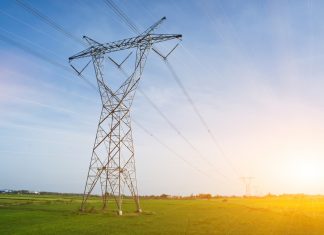Related coverage:
We won’t stop until the violence ends
Period project highlights effects of family violence
Three hundred police referrals a month.
That is the number Quantum Support Services in Gippsland has received for family violence incidents so far this financial year.
If the trend continues, it will be a 25 per cent increase from the last financial year.
“We’ve got an issue,” Quantum coordinator of housing, homelessness and community support Adrian Terranova said.
“And we’ve got to address that and it’s everyone’s issue to address.”
Today marks the end of the global campaign, 16 Ways in 16 Days of Activism, to stop violence against women.
But White Ribbon ambassadors, family violence workers and frontline emergency services are calling on the community to continue the conversation.
“It’s a hidden problem within the community that’s never been spoken about previously,” White Ribbon ambassador Grant Coulthard said.
“It needs to be made aware to the general public… to bring the issue to a point where it can be discussed and hopefully, ultimately, be prevented completely.”
About one in three women across the world experience some form of violence by their partner, according to the World Health Organisation.
Research from the Australian Bureau of Statistics shows since the age of 15, one in six women have experienced physical or sexual violence at the hands of a former or current partner.
A further one in four have experienced emotional abuse by a former or current partner.
Australia’s National Research Organisation for Women’s Safety says domestic and sexual violence is overwhelmingly committed by men against women.
“Family violence is just home front terrorism – it is just hijacking their (victim’s) own personal lives,” Quantum senior family violence worker Nesli Cassar said.
Ms Cassar has been working in the sector since 1989, supporting women experiencing or escaping family violence.
Her team provides crisis support to victims of family violence, identifying their needs, assessing their risks and planning safely for their next steps.
This could involve moving women and children into alternate accommodation or a refuge centre.
Alternatively, it could involve changing locks, providing security cameras or funding counselling services so they can remain at home.
“We will give her the information, we will provide everything in our power to show her what is available to her,” Ms Cassar said.
“It will be her choice. It will be her decision, but the idea is making sure her and her children are safe.”
Quantum provides up to 30 different programs – including homelessness and support – to Gippsland’s most vulnerable people.
But Mr Terranova said stamping out violence against women was not up to one single agency.
“We’ve got issues and we’ve got to all work together to resolve this,” he said.
Latrobe Valley topped a state list of family violence incidents between June 2014 and June 2015, with a rate of 3099.8 per 100,000 population.
With a busy period looming over Christmas and the new year, Ms Cassar and Mr Terranova have one message.
“Is it too simplistic to say, be kind to each other?” Mr Terranova said.
“Is it too simplistic to say, ‘we all need values that are driven that uphold people’s humans rights’?
“Family violence, homelessness, it breaches people’s very human rights.
“Be mindful, have those conversations. Be alert, be aware.”
If you are experiencing family violence, phone 000 for immediate assistance. For counselling and support, phone 1800 737 732.
If you feel your behaviour may be violent towards your partner and would like to talk to someone, phone
1300 766 491.










